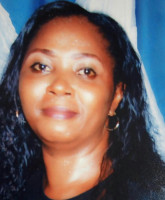Finance, Investment & Risk Management
Societal Challenges
Microfinance & Financial Inclusion
Gender Equality & Inclusion
Fintech & Digital Finance
Social Justice & Equity
Post-Doctoral Fellowships
Nigeria
2018.02.28
Financially empowering women farmers in Southern Nigeria
«Access to microfinance has been recognized as a crucial issue when it comes to empowering women, Dr. Vivian Ugwuja explains. But several issues and barriers to the success of microfinance as an industry have cropped up in Nigeria, the primary of them being sustainability of microfinance institutions (MFIs), outreach and impact». «In Nigeria, women have customarily been excluded from the domain of external information, both deliberately and because of factors working to their disadvantage such as lack of freedom of movement or low levels of education ». To remedy this situation, the researcher is counting on the potential of information and communication technologies (ICTs), in other words telecommunication services. «Thousands of MFIs around the globe are realizing that the solution for scaling up, and ensuring maximum outreach and sustainability of MFIs lies in leveraging the benefits of information and communication technologies». In Microfinance, these technologies are used in many daily operations: fund transfers, mobile finance systems for payments, micro-lending platforms, notification systems for clients, micro-insurance systems linked to farmer outputs and marketing activities, client enrollment through SMS, … «ICT opens up a direct window for women to the outside world. Information flows to them without any distortion or censoring. ICT allows for greater financial inclusion. ICT can also enhance the government’s capacity to monitor and evaluate financial services provided to rural clients and design effective financial policies and regulations for the rural sector ».
Assessing risk exposure for both customers and banks
So how exactly can these ICTs be used to better include women? «This is the heart my work: generating relevant information on how to financially include women, and protect them at the same time, she insists. Risks with online banking are not the same as with traditional banking. They are more diversified, more numerous, harder to avoid. In order to design better banking policies, these risks need to be identified, and not just those faced by the customers, but those faced by the banks as well». To get her answers, Dr. Ugwuja is conducting an extensive collection of data from a total of 480 women farmers living in Southern Nigeria, and 180 bank staff members. To make sure the study reflects the diversity of situations in this vast area, the participants are evenly distributed across the region’s three geopolitical zones, and then across states, agricultural zones and communities. The research study follows consecutive objectives: examining the conditions of access to online products, considering the online products available and their impact on female farmers, distinguishing the difference between those who have access and those who don’t, identifying the risks faced by those with access, and determining mitigation measures.
Microfinance holds great promises for micro-entrepreneurs, starting with the possibility of small loans to invest in their businesses, to then reinvest the returns and allow them to grow out of poverty. Yet, none of this is possible if the entrepreneurs in question have no knowledge of these services, lack access, or face too many risks. In this sense, the output of Dr. Vivian Ugwuja’s ambitious project is paramount for creating a solid and sustainable bridge between microfinance institutions and the small, yet absolutely crucial businesses ran by female-farmers in Southern Nigeria.

Vivian
UGWUJA
Institution
University of Port Harcourt
Country
Nigeria
Nationality
Nigérianne
Related articles
Finance, Investment & Risk Management
Societal Challenges
Microfinance & Financial Inclusion
Emerging Market
Inequality & Poverty
Joint Research Initiative
China
2021.04.19
Understanding the Financial Lives of Low Income Households in China
Leveraging financial diaries research methodology, this joint initiative aims to provide actionable insights about the financial lives of low-income households... Read more

Xiugen
MO
Chinese Academy of Financial Inclusion
Finance, Investment & Risk Management
Pandemics & Infectious Diseases
Economics & Global Development
Covid-19
Financial Markets, Modelling & Pricing
Economic Loss & Disaster Risk Financing
Insurance & Risk Management
AXA Award
France
2020.08.31
An Extreme Value Model For the Analysis of the COVID-19 Pandemic and Its Impact, and the Mitigation of Future Related Crises
The second strand of work will harness the vast wealth of functional data at our disposal to construct estimators for... Read more

Gilles
STUPFLER
